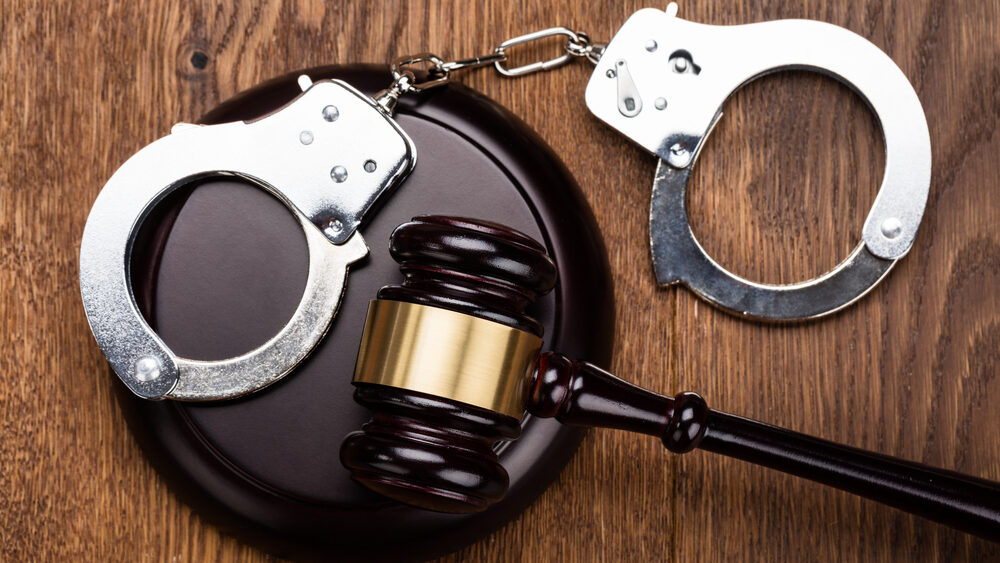What Happens During a Criminal Trial? A Step-by-Step Guide
May 31, 2023

A criminal trial is a complex and structured legal proceeding designed to ensure fair and impartial justice. It is during these trials that the guilt or innocence of an accused individual is determined. If you find yourself facing a criminal trial, it’s essential to have a clear understanding of the process to ensure you are well-prepared. In this article, we will provide a step-by-step guide to help you understand what happens during the criminal trial process.
Step 1: Arrest and Charges
The criminal trial process begins with an arrest. If law enforcement authorities have reasonable grounds to believe that a crime has been committed, they can apprehend the suspect. Following arrest, the suspect is formally charged with a specific crime or crimes. They are then processed through a series of administrative tasks, such as fingerprinting, photographing, and recording personal information. Charges are typically based on the evidence gathered during the investigation.
Step 2: Initial Appearance and Bail
After being arrested and charged, the suspect is brought before a judge for an initial appearance, also referred to as an arraignment. This usually takes place within 24 hours of the arrest, unless it falls on a weekend. During this stage, the judge informs the defendant of their rights, such as the right to an attorney and the right to remain silent. The judge will also formally announce the charges filed against you. While bail hearings would typically be part of initial court appearances, New Jersey is a “no bail” state.
Step 3: Plea Bargaining
In many cases, the prosecution and defense engage in plea bargaining, a negotiation process where the defendant agrees to plead guilty to a lesser charge in exchange for a reduced sentence. Plea bargaining aims to resolve the case without going to trial and can be beneficial for both sides. However, it is entirely voluntary and requires the agreement of both parties involved.
Step 4: Pretrial Motions and Discovery
Before the trial, both the prosecution and defense have the opportunity to file pretrial motions. These motions can address issues such as suppressing evidence, dismissing charges, or changing the venue. Additionally, the process of discovery will take place, where both sides exchange relevant evidence and information to ensure a fair trial.
Step 5: Jury Selection
If the case proceeds to trial, the next step is jury selection. This process involves the examination of potential jurors by both the prosecution and criminal defense attorneys. The goal is to select an impartial jury that will hear the evidence and make an unbiased decision. The jury selection process is vital, as it can directly impact the outcome of the trial.
Step 6: Opening Statements
Once the jury is selected, the trial officially begins. The prosecution and defense attorneys present opening statements. These statements serve as an introduction to the case and outline the arguments and evidence each side plans to present. Opening statements are not evidence but rather a preview of what will be established during the trial.
Step 7: Presentation of Evidence and Witnesses
During the trial, both the prosecution and defense will present their cases by introducing evidence and calling witnesses to testify. Evidence can include physical objects, documents, photographs, and witness testimony. Each side will have the opportunity to cross-examine the other’s witnesses to challenge their credibility or expose inconsistencies in their statements.
Step 8: Closing Arguments
Following the presentation of evidence and cross examination conclusions, both sides present closing arguments. These arguments summarize the evidence and witness testimony presented during the trial for the jury. The prosecution aims to prove the defendant’s guilt beyond a reasonable doubt, while the defense will seek to establish a reasonable doubt by raising alternative theories or interpretations.
Step 9: Jury Deliberation and Verdict
After closing arguments, the judge provides the jury with instructions on how to deliberate and reach a verdict. The jury’s task is to carefully review the evidence presented to them through the trial and determine the defendant’s guilt or innocence. They must reach a unanimous decision, except in cases where a hung jury is declared. Once a verdict is reached, it is announced formally in court.
Step 10: Sentencing
If the defendant is found guilty, a separate sentencing hearing is scheduled. During this hearing, the judge considers various factors, such as the severity of the crime, the defendant’s criminal history, and any mitigating or aggravating circumstances, such as showing a lack of remorse or if the crime committed was heinous in nature. The judge will then impose a sentence, which can include fines, probation, community service, and/or incarceration.
Key Takeaway:
A criminal trial is a complex and multifaceted process that ensures the fair and impartial administration of justice. By understanding the step-by-step progression of a trial, you can better navigate this challenging situation. From arrest to sentencing, each stage serves a specific purpose in determining the guilt or innocence of the accused. Remember, seeking professional legal counsel is essential to ensuring your rights are protected and that you have the best possible defense throughout your criminal trial.
Contact Stuart Law Today To Schedule A Free Consultation About Your Criminal Defense
When facing the complex and daunting legal process of a criminal trial, having a skilled and experienced criminal defense attorney by your side is paramount. Kimberley Stuart of Stuart Law is committed to guiding you through every step, ensuring your rights are protected, and providing you with the best possible defense.
Attorney Stuart brings a wealth of knowledge and a deep understanding of criminal law to each case she handles. With her sharp analytical skills and attention to detail, she leaves no stone unturned when investigating the facts and evidence surrounding your charges. Her relentless pursuit of justice and unwavering commitment to her clients have earned her a reputation for excellence in the legal community.
Throughout the entire legal process, Attorney Kimberley Stuart will be your staunch advocate, fiercely protecting your rights and vigorously fighting for your innocence. From the initial arrest and charges, to the courtroom trial, she will skillfully navigate the complexities of the justice system, ensuring that your voice is heard and your defense is robust.
If you are facing a criminal trial in NJ, don’t leave your future to chance. Put your trust in Attorney Kimberley Stuart of Stuart Law. Contact her today to schedule a consultation. You can rest assured that your case will be handled with the utmost professionalism, dedication, and expertise.
Get The Outcome You Deserve!
(Outcomes may vary and are based on the many factors of your case, etc.)

Criminal Offense
Charges Dismissed
Criminal Offense
Charges Reversed
Jail Sentence
Charges Reduced
DUI
Charges Dismissed
Juvenile Defense
All Counts Aquitted
Domestic Violence
![Quote]()
★
★
★
★
★
I highly recommend Kimberley! She is a kind, hard-working, understanding attorney who always has her clients' best interests at heart. She helped me through my case every step of the way and gave me comfort during a very difficult time. She fought for the best possible outcome for me, and we got it! Thank You Kim!Kristina
★
★
★
★
★
Kimberley is diligent, smart, and kind. She is professional and always ready to listen! She is a fighter!Anonymous
![Quote]()
★
★
★
★
★
Kimberley went above and beyond our expectations as our lawyer. We would definitely use her again if we ever needed her services.Joanne

Get A 100% Free Case Evaluation
From A Top-Rated Criminal Defense Attorney
Call: 856-205-4257 or Contact Us Online


